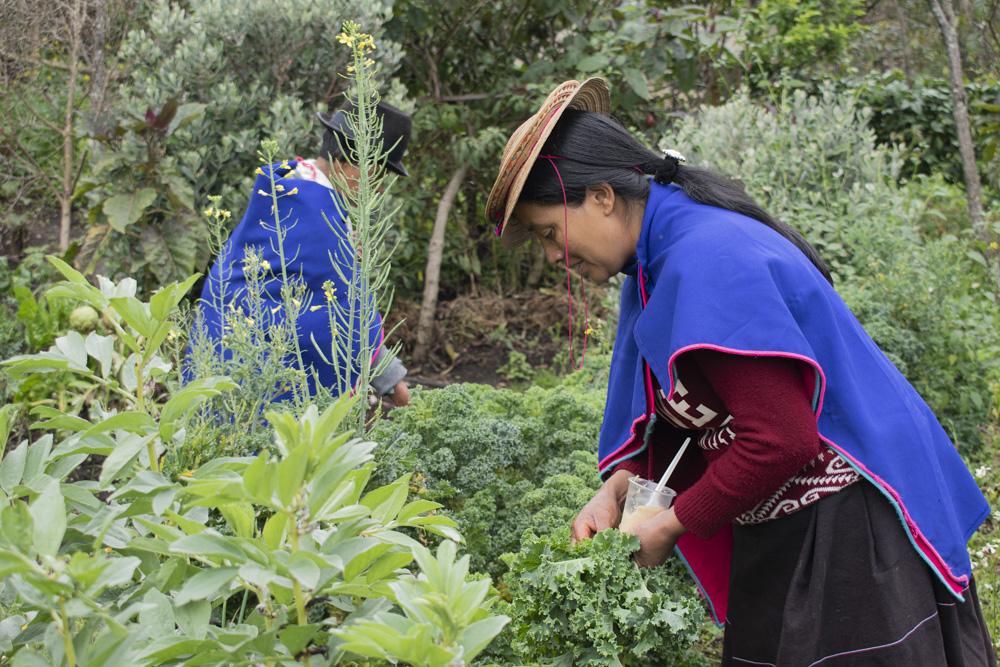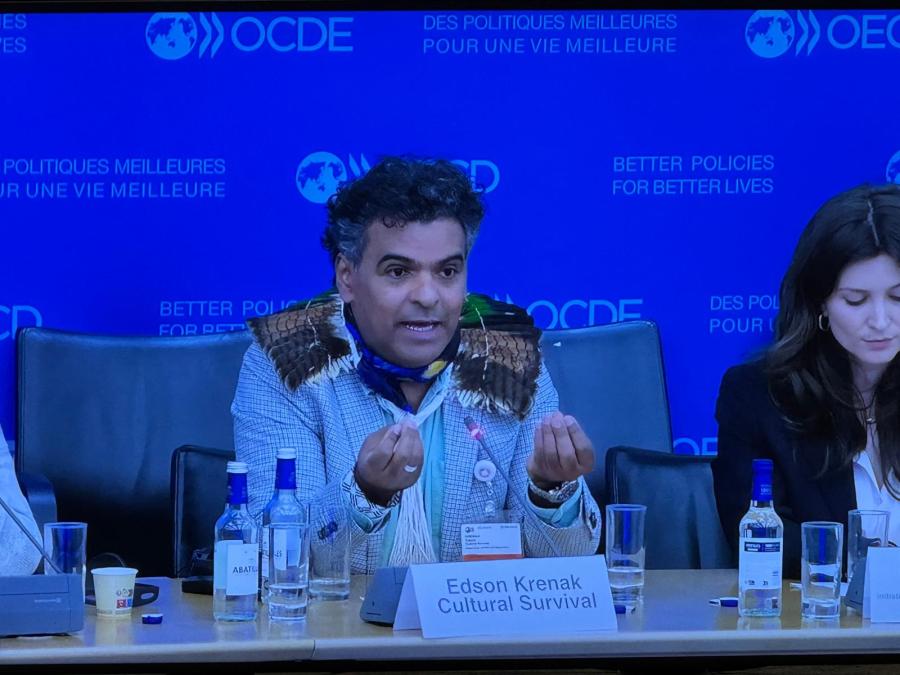
This year’s International Day for Biological Diversity (May 22) theme is “Harmony with Nature and Sustainable Development.” It brings together cross-cutting issues such as biodiversity and climate, including an economy that supports environmental objectives. This year's central message is to change strategies, initiatives, and action plans in these areas so that they contribute to achieving goals and positive outcomes, address inequalities, sustainable development, respect for traditional knowledge, and empower women, girls, and Indigenous Peoples.
Aimee Roberson (Choctaw and Chickasaw), Cultural Survival Executive Director, states, “On this International Day for Biological Diversity, we honor Indigenous Peoples as caretakers of their homelands and waters and the beautiful biodiversity of Mother Earth since time immemorial. We recognize that humans are not separate from Nature, rather, we have integral roles within the social-ecological systems we live in. Continuous commitment to sustainable lifeways and regenerative cultures is the only way to effectively address the intertwined global crises of drastically declining biodiversity, ecocide, and climate change. For biodiversity to thrive, we must respect Indigenous Peoples’ rights to govern themselves and steward their environments. We must also look to Indigenous leadership to guide us in the transition to more sustainable ways of life – the future of life on Mother Earth depends on it.”
Cultural Survival emphasizes the need to integrate Indigenous Peoples' Traditional Knowledge and practices into National Biodiversity Strategies and Action Plans, and as a key element in the fight against climate change.
Indigenous Peoples make a unique and important contribution to biodiversity conservation through their Traditional Knowledge and practices, which are based on hundreds of thousands of years of sustainable interaction and reciprocal relationships with Nature.
Their traditional ways of protecting forests, wetlands, tundra, and desert areas, water and ice resources, and wildlife help preserve and maintain balance in ecosystems and prevent environmental degradation, including the conservation of the planet's most endangered species. Traditional Knowledge passed down from generation to generation enables communities to adapt effectively to climate change and manage lands and waters with minimal interference, which helps to conserve species diversity and habitat.
Governments must recognize the value of Indigenous knowledge systems, help develop programs to support and strengthen them, and respect, protect, and fulfill Indigenous Peoples' rights and ensure the legal application of their traditional governance systems, including in decision-making processes related to the conservation of their territories.
To fully recognize and integrate Indigenous Peoples' Traditional Knowledge into conservation and protection policies, it is necessary to ensure their active and full partnership and participation at all decision-making levels, on the local, national, regional, and international levels.
It is vital to secure Indigenous Peoples' legal rights to their lands, territories, and resources, change perceptions and behavior toward their governance systems, and develop justice cooperative mechanisms between government, agencies, scientific institutions, and Indigenous Peoples' communities and organizations.
At a time when hundreds of experts and governments around the world are developing and adopting new goals and programs to combat degrowth, recognizing Indigenous Peoples' contributions to conservation is a key aspect of global efforts to conserve biodiversity and protect the environment.
Governments at all levels, international organizations, businesses, and academia must actively recognize and support Indigenous Peoples' role to increase their influence in conservation for future generations.
Ensuring the rights and recognition of the role and contribution of Indigenous Peoples to global conservation efforts are fundamental steps to achieving the goal of safeguarding biodiversity and halting the degradation of natural ecosystems.
Photo: Cultural Survival Keepers of the Earth grant partner, Asociacion Jardín Botánico Las Delicias.



